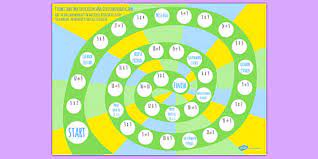Math Games: Making Learning Fun and Engaging
Mathematics can often seem like a daunting subject Math Games for many students, but incorporating games into math instruction can transform the learning experience into a fun and engaging adventure. Math games are not just entertaining; they also offer a multitude of educational benefits that help students grasp mathematical concepts more effectively. Here’s why math games are valuable and some examples of games that can make math learning enjoyable.
Why Math Games?
- Enhanced Engagement: Traditional math lessons can sometimes feel repetitive or uninspiring. Games add an element of excitement and competition, which can make students more eager to participate and learn.
- Improved Retention: When students learn through play, they are more likely to remember concepts. The interactive nature of games helps reinforce mathematical ideas and skills through repeated practice.
- Development of Critical Thinking: Many math games require strategic thinking and problem-solving. These activities encourage students to apply their knowledge in creative ways, helping to develop their critical thinking skills.
- Immediate Feedback: Games often provide instant feedback, allowing students to see the results of their actions right away. This immediate response helps them understand what they’ve learned and where they might need more practice.
- Social Skills: Playing math games with peers fosters collaboration and communication. Students learn to work as a team, share ideas, and discuss strategies, which enhances their social skills.
Examples of Math Games
- Math Bingo: A twist on the classic Bingo game, Math Bingo involves solving math problems to fill in the squares on a Bingo card. This game can cover various topics such as addition, subtraction, multiplication, and division, making it versatile for different grade levels.
- Math Jeopardy: Inspired by the popular TV quiz show, Math Jeopardy can be adapted to any mathematical topic. Students choose questions from different categories and earn points for correct answers. This game encourages quick thinking and recall of math facts.
- Monopoly with a Math Twist: Modify the classic Monopoly game by incorporating math problems into the gameplay. For example, players must solve a math problem to determine their moves or to earn money, blending traditional play with mathematical challenges.
- Flashcard Wars: This fast-paced game involves using flashcards with math problems. Students compete to answer questions correctly and quickly, with each correct answer earning them a point. It’s a great way to practice basic math facts in a fun and competitive manner.
- Online Math Games: There are numerous educational websites and apps offering interactive math games. These digital resources often feature adaptive learning technologies that cater to different skill levels and provide a range of activities from basic arithmetic to advanced algebra.
Tips for Using Math Games Effectively
- Align with Learning Goals: Choose games that reinforce the specific math concepts being taught. Ensure that the games support the curriculum and learning objectives.
- Encourage Participation: Create an inclusive environment where all students feel comfortable participating. Ensure that the games are accessible to students of varying skill levels.
- Mix with Traditional Instruction: Use games as a supplement to traditional teaching methods, not as a replacement. A balanced approach ensures that students receive comprehensive instruction.
- Reflect and Discuss: After playing a math game, take time to reflect on the experience. Discuss what strategies worked, what challenges were encountered, and how the game helped reinforce mathematical concepts.
Conclusion
Math games offer a dynamic and interactive way to enhance mathematical learning. By making math enjoyable and engaging, these games help students develop a positive attitude towards the subject and build essential skills in a fun, social setting. Whether in the classroom or at home, incorporating math games into education can transform math from a daunting subject into an exciting adventure.

